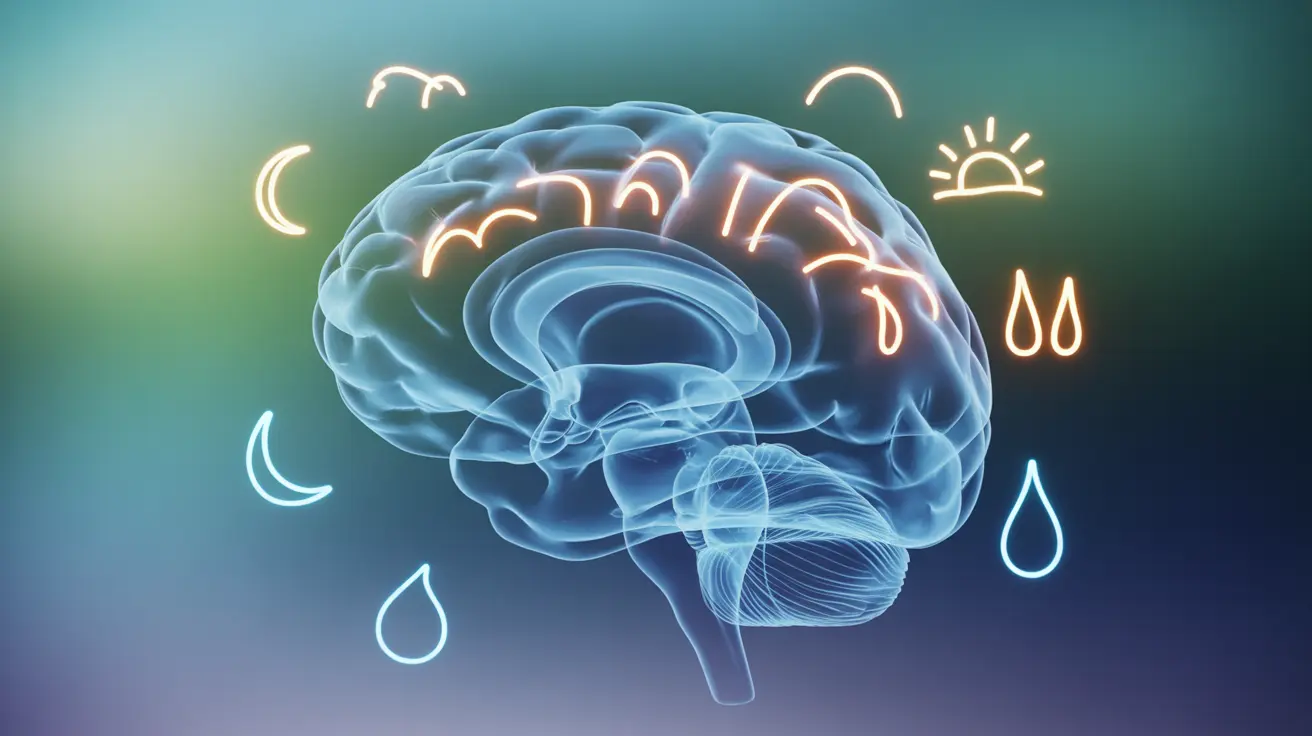Experiencing a concussion can affect more than just your physical health - it can also have a significant impact on your mental well-being. Research has shown a clear link between concussions and the development of depression, making it crucial for both patients and healthcare providers to understand this connection. This comprehensive guide explores the relationship between head injuries and depression, including risk factors, symptoms, and treatment options.
Understanding the Link Between Concussions and Depression
When someone experiences a concussion, the brain undergoes various chemical and physical changes that can affect both cognitive function and emotional regulation. These changes can directly influence mood regulation systems in the brain, potentially leading to the development of depression. Studies indicate that individuals who have experienced a concussion are about three times more likely to be diagnosed with depression compared to those without a history of head injury.
Recognizing Post-Concussion Depression Symptoms
Depression following a concussion can manifest differently than typical depression, often intertwining with other post-concussion symptoms. Common signs include:
- Persistent feelings of sadness or hopelessness
- Loss of interest in previously enjoyed activities
- Changes in sleep patterns
- Difficulty concentrating
- Increased irritability
- Physical symptoms like headaches and fatigue
- Social withdrawal
- Changes in appetite
Risk Factors for Post-Concussion Depression
Several factors can increase the likelihood of developing depression after a concussion:
Personal History
Individuals with a previous history of mental health conditions or prior concussions may be more susceptible to developing depression after a head injury.
Injury Severity
More severe concussions or those involving loss of consciousness may carry a higher risk of subsequent depression.
Social Support
Limited access to support systems or isolation during recovery can contribute to the development of depressive symptoms.
Treatment Approaches
Managing depression after a concussion requires a comprehensive treatment strategy that addresses both the physical and emotional aspects of recovery:
Medical Management
- Professional mental health counseling
- Medication when appropriate
- Regular monitoring of symptoms
- Cognitive behavioral therapy
Lifestyle Modifications
Implementing healthy lifestyle changes can support recovery:
- Maintaining a regular sleep schedule
- Engaging in approved physical activity
- Following a balanced diet
- Practicing stress management techniques
- Gradually returning to normal activities
Prevention and Long-term Considerations
Understanding the potential long-term effects of multiple concussions is crucial for prevention and management. Athletes, in particular, should be aware that repeated concussions can increase the risk of chronic depression and potentially lead to more severe mental health challenges.
Frequently Asked Questions
Can a concussion cause depression and how common is it after a head injury?
Yes, concussions can cause depression, with studies showing that approximately 20-30% of individuals who experience a concussion may develop depression within the first year after injury. The risk is significantly higher compared to people without a history of head trauma.
What are the symptoms of depression related to post-concussion syndrome?
Depression symptoms related to post-concussion syndrome include persistent sadness, sleep disturbances, concentration problems, irritability, loss of interest in activities, and changes in appetite. These symptoms often overlap with other post-concussion symptoms, making proper diagnosis crucial.
Which factors increase the risk of developing depression after a concussion?
Risk factors include a history of previous concussions or mental health conditions, the severity of the injury, limited social support, and delayed treatment. Women and older adults may also have a higher risk of developing post-concussion depression.
How is depression treated if it develops after a concussion?
Treatment typically involves a combination of professional counseling, possible medication, cognitive behavioral therapy, and lifestyle modifications. The approach is usually personalized based on symptom severity and individual needs.
Can repeated concussions make depression symptoms worse or recovery longer?
Yes, multiple concussions can lead to more severe depression symptoms and longer recovery periods. Each subsequent concussion may increase the risk of developing chronic depression and can complicate the recovery process.




